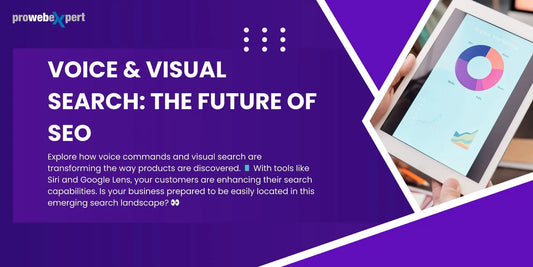
The Emergence of Agentic Web: The Impact of Autonomous AI Agents on Online Conduct
Share
The internet is experiencing major transformations, and our ways of engaging with it are evolving as well. With the rise of artificial intelligence, we are entering a new digital era known as the Agentic Web. Unlike the traditional web, where users search, click, and interact manually, the Agentic Web utilizes autonomous AI agents to perform these tasks on behalf of users. These sophisticated systems are designed to understand user preferences, make educated choices, and carry out actions independently, reducing the need for ongoing human input.
This blog post explores the idea of the Agentic Web, how AI agents are influencing user behavior, and what this shift means for businesses, marketers, and developers.
What Is the Agentic Web?
The Agentic Web denotes a developing stratum of the internet wherein AI-driven software agents perform tasks that have conventionally necessitated human involvement. These agents are capable of shopping, arranging meetings, reserving appointments, comparing products, managing emails, and even creating content, all in real-time.
Consider them to be digital helpers, yet significantly more self-driven and independent. Instances of this include:
-
An AI for travel planning that arranges flights and accommodations according to your schedule and preferences.
-
A shopping assistant that evaluates product reviews and identifies the best prices.
-
An AI-driven customer support chatbot that addresses issues without the need for escalation.
The fundamental concept revolves around delegation. Users assign tasks to AI agents, which operate on their behalf with little oversight.
How AI Agents Are Changing Online Behavior
-
From Search to Delegation, Users will increasingly depend on AI agents to obtain information instead of entering queries into Google. This transition alters the fundamental nature of SEO and content strategy, as search engines are no longer the main gatekeepers.
-
Faster Decision-Making, AI agents are capable of analyzing extensive data sets within seconds. Be it the selection of a credit card or the identification of the appropriate SaaS tool, decisions that previously required hours can now be reached in mere moments.
-
Enhanced Personalization, With the availability of user data, such as browsing history, purchase records, and individual preferences, AI agents are capable of delivering highly personalized experiences. Anticipate greater engagement and more pertinent recommendations.
-
Minimized Friction in E-Commerce. Envision a scenario where your AI assistant manages your grocery list, places the order each week without fail, and identifies alternatives when an item is unavailable. The automation of e-commerce will experience exponential growth.
-
Increased Confidence in Suggestions. Individuals tend to have more faith in a system that understands their habits compared to standard reviews or advertisements. Consequently, conventional advertising may diminish in effectiveness unless it is combined with AI agents.
Impact on Businesses and Marketers
-
Changes in SEO and Content Marketing. The era of focusing exclusively on keyword optimization is coming to an end. Today, companies need to optimize for AI understanding. It will be crucial to produce content that delivers clear, factual, and well-structured information.
-
The importance of structured data is clear; websites should implement schema markup and structured metadata to help AI agents easily understand and extract relevant information.
-
Conversational Interfaces and APIs, Organizations might be required to develop open APIs or connect with external platforms to enable AI agents to engage with their services.
-
AI-Optimized Products and Pricing, As AI agents will automatically compare products, elements such as pricing, delivery speed, and availability will gain increased importance.
-
New Metrics for Marketing, Traditional metrics such as clicks and impressions may lose their significance. Instead, companies will evaluate success based on the frequency with which their brand or product is selected by AI agents.
Preparing for the Agentic Web
Companies can begin to adjust to this future in these ways:
-
Embrace AI-compatible design: Ensure content is clear, well-organized, and rich in data.
-
Employ automation: Incorporate AI technologies for customer assistance, email marketing, and inventory management.
-
Collaborate with AI platforms: Investigate collaborations with virtual assistants such as Alexa, Google Assistant, or external APIs.
-
Emphasize worth and openness: AI agents favor brands that are trustworthy, highly rated, and transparent.
Conclusion
The emergence of the Agentic Web is not a far-off prospect; it is currently underway. From online searches to shopping experiences, AI agents are altering how users interact with the internet. For businesses, this signifies a transition from focusing on individuals to concentrating on their digital agents. Organizations that adapt to this change now will secure a considerable competitive advantage in the future.
By comprehending the functioning of autonomous AI agents and adjusting strategies accordingly, marketers and developers can maintain a competitive edge in this rapidly changing environment.



